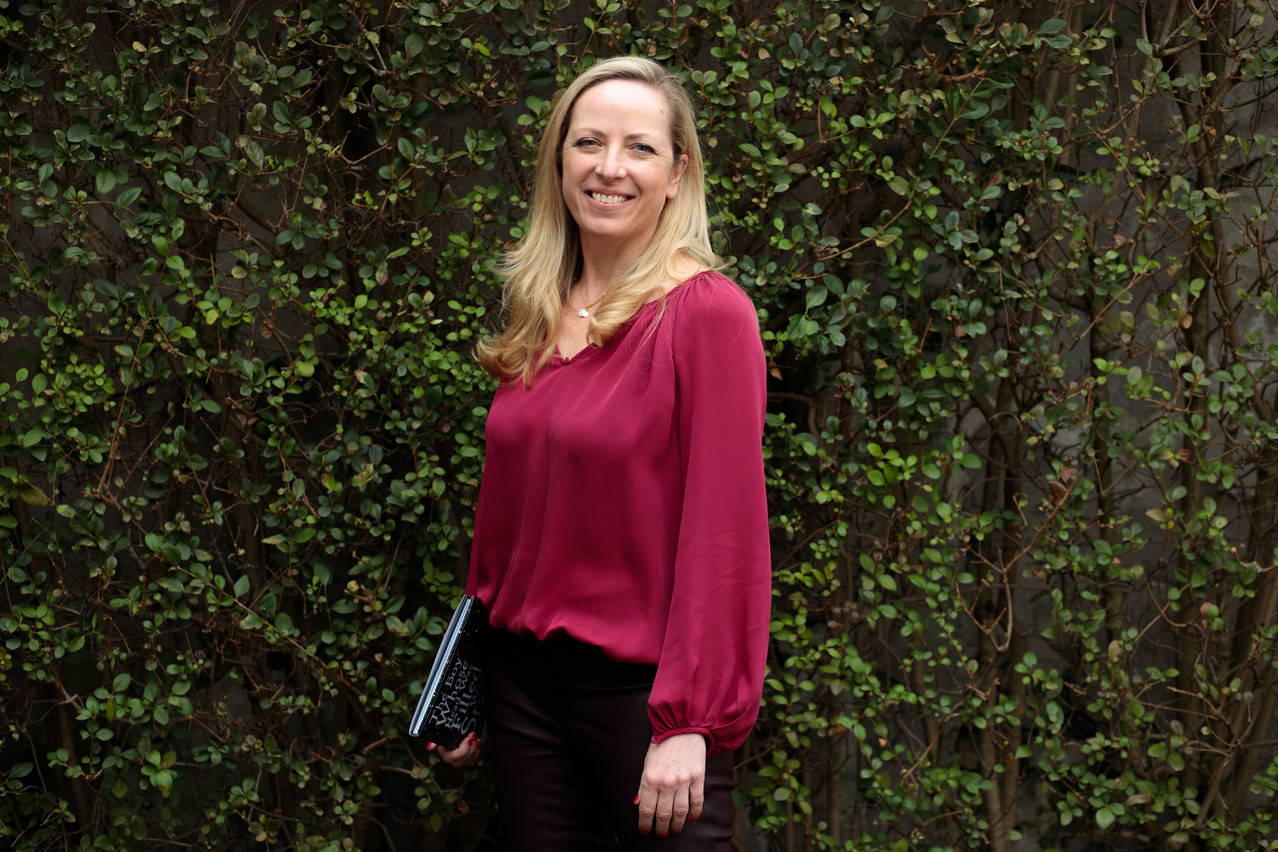“Write about what you know,” is the sage advice given to aspiring writers in the well-worn adage. Well, Luxembourg author Isabelle Marinov has a different take. She writes about what interests her, and then gets to know her subject.
Take her latest picture book--her preferred nomenclature for illustrated books that can appeal across generations--The Boy Whose Head Was Filled With Stars. In wonderfully accessible language, Marinov tells the story of astronomer Edwin Hubble and the major discoveries he made that changed the way we see the universe, including the fact that the universe is much larger than previously thought and is expanding at an accelerating rate.
“I was researching another story, and then I bumped into his biography,” Marinov explains. “So, I started reading and it was so fascinating that I bought more books. And I really started doing research for, I would say, six months, before I actually wrote anything.”
The book, beautifully illustrated by Deborah Marcero, has garnered acclaim in such esteemed media as The Wall Street Journal and Publishers Weekly (which, alongside Kirkus, gave it a starred review). That’s impressive for an author whose native tongue is Luxembourgish. So how did this fascination for writing in English come about?
“It really started in high school. I had a very good English teacher, Germain Dondelinger, who unfortunately passed away a few years ago, before I published any books. I've always been interested in languages and literature, in French and German too, but I had a special link to English, I don't know why.” A year at Cornell Law School simply enhanced her love of the language. “That's when I really started reading English exclusively; magazines, books, everything.”
But Marinov was never really happy with her legal career--“I think I just chose law because it was a way to make money”--and in 2000 she took her first online creative writing classes. She hasn’t looked back.
Positive reviews
20 years later, Marinov is a member of the Society of Children's Book Writers and Illustrators and was a 2017/18 Children's Literature Fellow at Stony Brook University in Southampton, New York. Still, the positive reviews for The Boy Whose Head Was Filled With Stars have come as a nice surprise. “I think that people react to it because it has this philosophical component.” It's not only about Hubble’s life, but also allows the reader to think about what his discoveries--the vastness of the universes--mean for them. “That's something we often forget in our everyday, because we don't have time to think about it. But it puts everything into perspective.”
It was the publisher, New York’s Enchanted Lion Books, who commissioned illustrator Marcero--an inspired choice says Marinov--and also drafted in astrophysicist Dr Roberto Trotta as a scientific advisor. “He really checked everything, even when we made a small change.”
Alongside the Hubble book, Marinov has also had another picture book published this year. Leo And The Octopus came about after she read two books about octopuses and became obsessed. “That’s always a good sign. When I become obsessed, that means I have to write something.” Leo is a young boy on the autism spectrum who befriends an octopus. “And because the octopus changes colours, according to mood, he understands it. My son actually has Asperger’s, and so I made the connection between the two.”
That book is now being translated into French, Portuguese and even Luxembourgish after Binsfeld picked up the rights for the grand duchy. Marinov has been working with Martine Schoellen on the translation back into her native language, and experience she finds enlightening. “It made me realise how difficult it is to say certain things in Luxembourgish. I think that's why I like to write in English, because if I can give it this rhythm…”
Patience, practice, persistence
On 20 January, Marinov will be leading an online workshop for the newly formed Writers Who Talk group in Luxembourg, explaining her craft and also providing advice for writers looking to get published.
“People have no idea how difficult it is, especially the picture book market, I think a lot of people think it’s something you would write over a weekend. Just because it’s short doesn’t actually make it easier. I think it’s as complicated as a novel.” And making a living is certainly not a given. Although she was lucky enough to get The Boy… accepted way back in 2016 without an agent, finding a publisher nowadays means having representation through an agent--Marinov landed Silvia Molteni at Peters Fraser + Dunlop in London after submitting a children’s novel that still hasn’t found a publisher. “Agents take 15% of your sales, so they only take you if they need you. I haven't paid anything for a year now as we’ve been working on the novel.”
Patience, practice and persistence, then, are watchwords she would advise any aspiring author to bear in mind. “Write every day--constantly try to improve your craft--and accept that certain stories will never see the light of day,” she says. “And don't expect that things will happen overnight.”
Her own craft, she says, has developed in that she now pays more attention to character. “Go deep…even if that is sometimes uncomfortable, because it’s stuff you may be dealing with in your own life. Ultimately, I think it's character that influences plot.”
Isabelle Marinov will be leading a virtual bootcamp on writing for children for Writers Who Talk at 10.30am on Saturday 20 February. Check out the event on Facebook.
